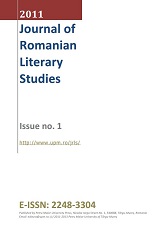The Contexts of Kafka : Dystopia, Phantasy, Multiculturalism
The Contexts of Kafka : Dystopia, Phantasy, Multiculturalism
Author(s): Virgil NemoianuSubject(s): Literary Texts
Published by: Editura Arhipelag XXI
Summary/Abstract: One way in which stability expresses itself is the establishment of contexts. Why? Because an author, even one that is often described as modern or post-modern, in any case not a traditional kind of writer, can be read and interpreted in connection with other authors, of the past, or of the present, or of quite different environments. On the one hand such a reading is helpful and explanatory, it deepens our appropriation of the author under discussion. On the other hand, a contextual interpretation discovers a multitude of connecting lines between the author (Franz Kafka in our case) and others, thus reducing the impression of irrational disorder, or of total, arbitrary, invention. Contextual methodologies are, I maintain, an excellent technique for establishing a healthy balance between innovation and tradition. My discussion of Kafka here, chiefly aspires to put on the table a few suggestions that aspire to enrich the multiplicity of contextualizations that are logical and plausible for writers in the mold of Franz Kafka. Such contextualizations, in the tradition of Comparative Literature, do not have to be based on strict historical causality, on social, religious, psychological determinations that can be measured and proved. Rather such parallels can also be theoretical, typological, or generic in their nature. In my view such analogies are as important as other, more firmly deterministic founded, contextualizations and explanations. In fact they can also serve as reliable vindications of the significance of the author. Such contextual approaches may be as numerous as the complexity of the author under discussion allows. In our case I will concentrate on three larger categories. These are, in the first place the utopian/dystopian tradition which, to the best of my knowledge, has been seldom used as a tool in Kafka studies. Second, the somewhat more frequently examined connection with the Romantic and post-Romantic fantastic tradition, including a quick look at some contemporary (or almost-contemporary) figures; this I will do primarily with the intention of providing a foundation to the dystopian argument, , i.e. in order to show how the first is the crystallization of the broader second (fantastic) argument. Finally, and third, I will add a very few allusions to possible analogies to the techniques of non-European writings, especially one major classical Chinese novel. My methodology will not seek depth, it will rather deal in extension, it will pursue the dimension of breadth. That is why I will limit myself to the discussion of a relatively small number of prominent works.
Journal: Journal of Romanian Literary Studies
- Issue Year: 2011
- Issue No: 01
- Page Range: 3-16
- Page Count: 14
- Language: English

